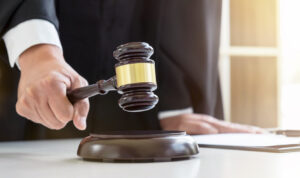
Most personal injury claims don’t go to trial. Among those personal injury claims that do proceed to final judgment, you can be certain that at least one party doesn’t like the decision. Under the right circumstances, that party can appeal the judgment, or a decision made in the case, to a higher court.
Once the trial court issues a decision, you normally have 30 days to file an appeal. The issue in an appeal is always whether the lower court appropriately applied the law to the facts of the case. The Florida Rules of Appellate Procedure govern civil appeals.
An Appeal Is Not a New Trial

An appeal is not the same as a new trial. The appeals court will not allow you to call or cross-examine witnesses. You cannot present new evidence or impanel a jury. Normally, you cannot raise new objections that you did not raise at the trial level.
Most of the time, the appeals court simply reviews the trial record. Sometimes the court will allow the parties to present oral arguments before the tribunal.
Issues of Fact vs. Issues of Law
Courts like to divide issues of contention into “issues of fact” versus “issues of law.” An example of an issue of fact might be, “Was the defendant intoxicated on the night in question?” An example of an issue of law might be, “Did the plaintiff’s evidence meet the ‘preponderance of the evidence’ standard necessary to prevail in a civil lawsuit?” Many issues fall somewhere between these two extremes.
Issues of fact are considered the province of the trial court. The reason is that a trial court has more direct access to evidence. They can watch a witness testify in person, for example, rather than read a transcript of the witness’s testimony the way that appeals courts do. On the other hand, the appeals court is just as competent as the trial court when it comes to issues of law.
Grounds for Appeal
Following are some examples of common grounds for appeal:
- The court disallowed an appropriately qualified expert witness;
- The court allowed the opposing party to call an unqualified expert witness;
- No reasonable jury could possibly have decided in the opposing party’s favor, given the evidence presented;
- The court inappropriately accepted the opposing party’s Motion to Dismiss;
- The court disallowed important evidence;
- The court allowed the opposing party to introduce evidence that violated the evidence restrictions contained in the Florida Evidence Code; or
- Jury or court misconduct.
There are many other possible grounds for appeal.
Why Might the Court Deny Your Appeal Petition?
There are several reasons why an appeals court might deny your appeal petition, including:
- You filed your appeal past the 30-day deadline.
- You failed to object to the grounds for your appeal during the trial; you are only complaining about it now that you lost the case.
- Your appeal includes insufficient evidence to justify modifying the trial court’s decision.
- None of your grounds for appeal are persuasive.
- You have already signed a settlement agreement with the opposing party, thereby concluding the case.
There are many other reasons why an appeals court might reject your appeal.
The Standard of Review
The “standard of review” is a standard that tells the appeals court how much deference they should grant the trial court judgment. In some cases, the appeals court can ignore the trial court judgment. In other cases, they can only overturn the trial court if they have a very good reason to.
The “De Novo” Standard of Review
Courts adopt a “de novo” standard of review with respect to issues that are closest to being characterized as “issues of law.” In a de novo review, the court grants no discretion to the trial court and decides the issue as if it was the trial court hearing the issue for the first time.
The “Abuse of Discretion” Standard of Review
Under an “abuse of discretion” standard, the court grants considerable discretion to the trial court’s judgment. It will only overrule the trial court’s decision if it is clearly erroneous. If any remotely credible argument can be made in favor of the trial court’s decision, even an argument that the appeals court disagrees with, they will uphold the trial court’s decision.
Appeals courts apply the “abuse of discretion” standard to issues that can most nearly be classified as issues of fact.
The Consequences of a Successful Appeal
There are three possible consequences of a successful appeal.
- The court will overturn a judgment against the plaintiff and award the damages that the plaintiff requested;
- The court will overturn a judgment against the defendant and vacate the judgment that awarded damages to the plaintiff; or
- The court will order a new trial with appropriate instructions to the trial court.
The opposing party can try to appeal the judgment of the appeals court.
Can You Appeal a Second Time?
Only in rare cases. In Florida, you have no absolute right to a first appeal, much less a second one. The higher you go up the judicial ladder to the Florida Supreme Court, the harder it is to get a hearing -– and the harder it is to win.
You Almost Certainly Need a Qualified Clearwater Personal Injury Lawyer for an Appeal
Because courts grant a lot of discretion to lower court judges, most parties who appeal lose – assuming they can even get the court to hear their case. To enjoy a reasonable chance of success, you need a skilled and experienced Clearwater personal injury lawyer who has pursued civil lawsuit appeals before.
Schedule a Free Consultation With Our Clearwater Personal Injury Lawyers
We understand how insurance companies investigate and process claims. Roman Austin Car Accident and Personal Injury Lawyers have extensive knowledge of Florida’s insurance laws and personal injury laws.
Let us help you get the money you deserve after a personal injury or accident. Call our law firm at (727) 787-2500 to schedule your free case evaluation with an experienced Clearwater personal injury attorney.

